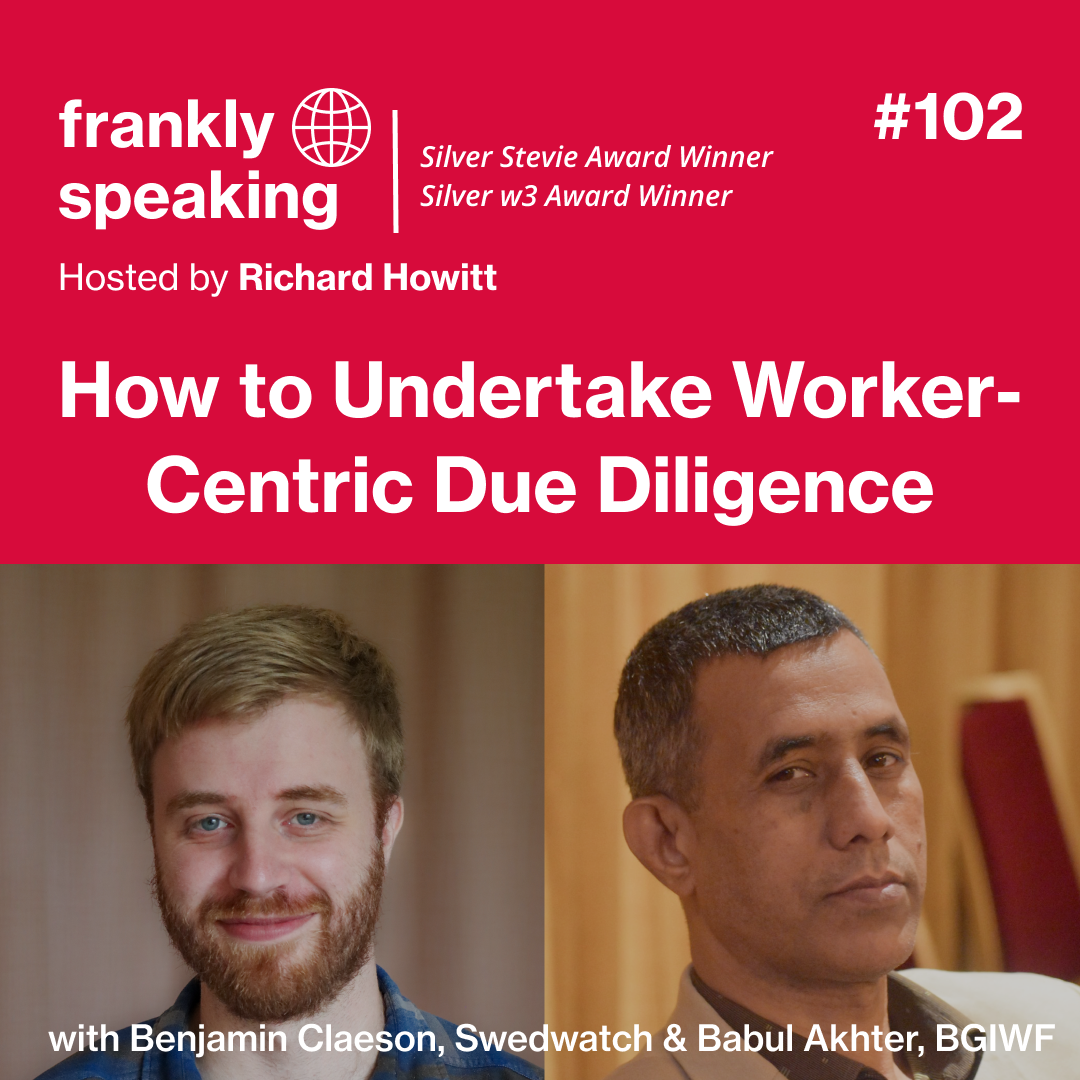Listen to Sarah Dadush, founder of the Responsible Contracting Project, writer and professor in business and human rights at Rutgers Law School

In this Frankly Speaking episode, we explore the question of human rights due diligence by companies by asking what should go in the contract. Due diligence approaches have been criticized as simply using contractual clauses to pass off risk and responsibility down the supply chain.
To address how this can be avoided and to discuss what should and shouldn’t be in the contract, Richard Howitt welcomes Professor Sarah Dadush, writer and teacher in business and human rights at Rutgers Law School in the United States. She is the founding director of the Responsible Contracting Project, the mission of which is to improve human rights in global supply chains through innovative contracting practices. Check out Responsible Contracting Project's website to access all their tools.
In this episode, you’ll hear more about:
“ The responsibility for companies to respect human rights has been widely recognized. It's inalienable. You can't just use your contract to pass it on to someone else. To be due diligence-aligned, contracts should integrate the three R's of responsible contracting, which are: (1) responsible allocation of risks and responsibilities, (2) responsible purchasing practices, (3) remediation first and responsible exit.”

.png)

How can we make sustainability governance deliver?


How can worker-centric models of due diligence help to better protect workers and communities worldwide from human rights abuses?
.png)

How did the ESRS simplification process look like from the inside? Listen to Patrick de Cambourg, outgoing chair of EFRAG